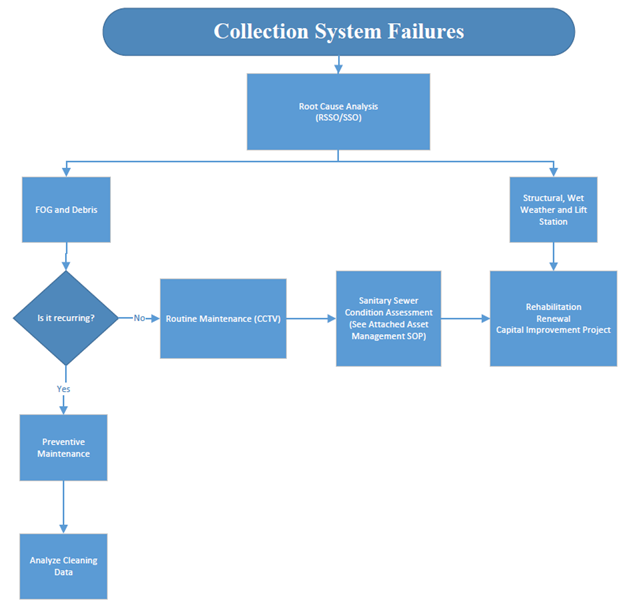(630) 682-4700
2655 Warrenville Road, Suite 225, Downers Grove, IL 60515
Better information about your collection, water, and stormwater systems
Explore ClarityBetter information about your collection, water, and stormwater systems
Explore Clarity
Mr. Nickel is an experienced project manager and highly skilled with a compreh...
So, you reviewed thousands upon thousands of feet of CCTV footage and now you have mountains of data on your sewer system. Great, but now what? How do you take the time, effort, and spreadsheets teeming with information from your CCTV endeavors and turn them into something that works for you? As your fight-or-flight response begins to kick in, take a moment to collect yourself and know that you’re not alone. Now that you’ve recentered yourself and crept back in from the fire escape, our asset management pro, Tristan Nickel, PE, AWAM, has some insights on putting your data to work.

“It would take forever to manually go through the massive amounts of data, said Nickel. If we run your CCTV review data through the asset management software, we can build a prioritized program that tells you where you have trouble brewing and assist with setting cleaning frequencies for your program (i.e., 3, 6, 9, 12, or 18-month cleaning cycles).
When you are armed with actionable intel, your preventative maintenance program becomes a smart tool that focuses your maintenance budgets where they will do the most good.”
First order of business: Do you have a preventative maintenance program (PM)? If so, how are you prioritizing your program to ensure you are actually benefiting your system based on the level of effort being conducted? If you answered “no” to either of these questions, that is OK. This is where those mountains of data come into play.
RJN customizes InfoAsset Planner using complex decision trees that quickly sift through volumes of CCTV data, assigning criticality scores and prioritizing each sewer segment to reveal next action steps. GIS layers serve as the foundation and critical information about your sewer system influences the analysis to target hot spots, i.e., areas congested with or likely to have high concentrations of fats, oils, and grease (FOG) build-up. Correlating inspection data with locations of high-density housing and commercial dining points to spots with issues and are used to formulate recommendations.
This brings us to our second point: The quality of your data is critical to the success of using smart analytics to build a preventive maintenance program. So, do you have an assortment of internal and external sources working on your CCTV inspection program?
“One of our clients had major disparities in their data,” Nickel said.
“The lack of uniformity caused a standstill for moving forward, like working apples and oranges. It was imperative to develop standard operating procedures (SOP) for CCTV data collection and analysis processes.”
It is important to establish qualification, verification, and quantification procedures that are rooted in standardization. Industry-accepted NASSCO guidelines provide a sound starting point with clear standards for processes and categorizing pipeline conditions based on criticality and severity of pipeline defects. Implementing workflows for accepting and reviewing CCTV and establishing defined QA/QC checkpoints and measures prior to acceptance will produce consistent data that will flow into the analysis process and produce consistent results for sound decision making.
“Our client’s high-volume of CCTV footage and variances in data quality meant that each City analyst spent more than 50% of their time on follow-up, which caused their annual maintenance program to fall behind.” Nickel said, “To remedy this, we worked with the City to develop SOPs to develop requirements for CCTV data deliverables and quality control measures. We then facilitated data workshops with City staff and their contractors to establish expectations and get everyone on the same page.”
If you are looking to efficiently turn your CCTV data into usable intelligence, it is important to standardize the data for consistency so you can be confident planning is using apples-to-apples analyses. Smart analytical tools will use your unique requirements to transform your data into budgetable and actionable short- and long-term maintenance plans.

Mr. Nickel is an experienced project manager and highly skilled with a compreh...